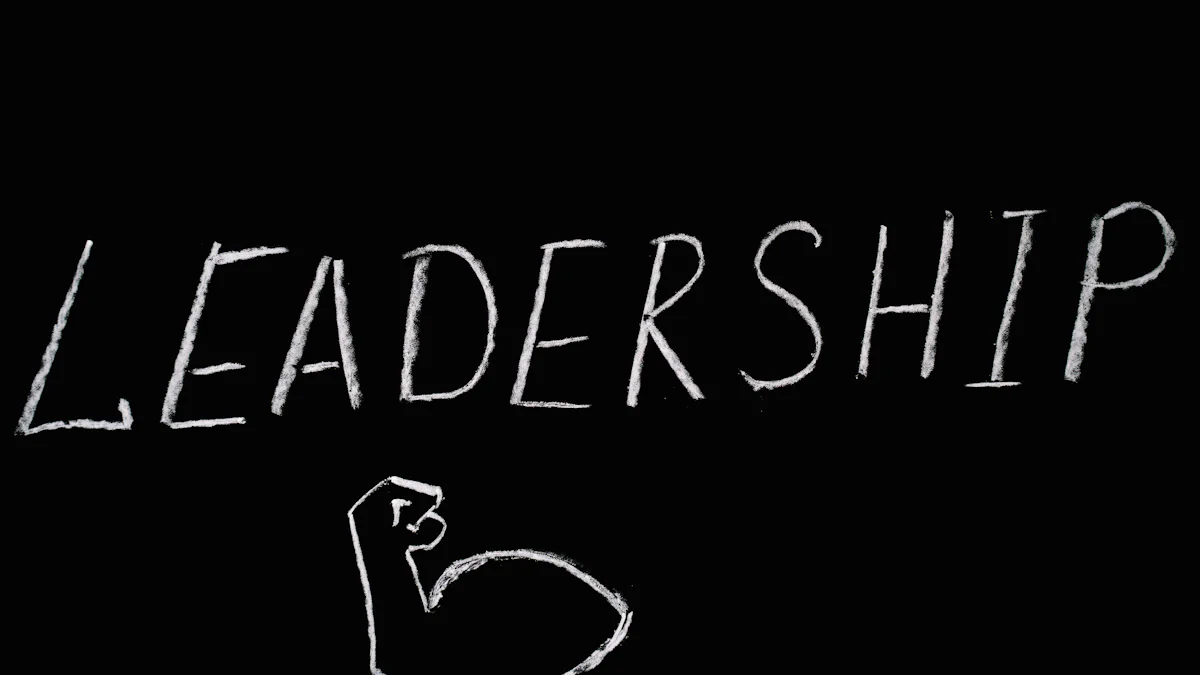Unlocking Leadership: The Learning Mindset

Leadership plays a crucial role in today's dynamic world. Effective leaders understand the necessity to learn and adapt. The concept of a learning mindset becomes essential for success. Leaders are learners who embrace growth and continuous improvement. A learning mindset fosters creativity, innovation, and resilience. Leaders with this mindset inspire teams to learn and grow. My personal journey highlights the power of learning. I learned that embracing challenges leads to growth. Learning from mistakes builds resilience. Feedback drives improvement. A commitment to learning transforms leadership. Leaders who learn create environments that thrive. This mindset empowers individuals and organizations alike.
Leaders are learners

Understanding the Learning Mindset
Definition and Characteristics
Leaders are learners who embrace a mindset focused on growth and development. A learning mindset involves a belief in the ability to improve through dedication and effort. Leaders with this mindset remain open to new experiences and ideas. Curiosity drives these leaders to explore and understand different perspectives. Leaders are learners who view challenges as opportunities for growth. This mindset encourages adaptability and resilience in the face of adversity.
Benefits for Leaders
Leaders who adopt a learning mindset experience numerous benefits. These leaders foster creativity and innovation within their teams. A commitment to learning enhances decision-making skills and improves performance. Leaders are learners who build stronger relationships by promoting collaboration. Employee engagement increases under leaders who value continuous improvement. Leaders who learn inspire their teams to reach their full potential. A learning mindset contributes to higher employee retention and satisfaction.
Overcoming Barriers to Learning
Common Challenges
Leaders often face barriers that hinder their learning journey. Fear of failure can prevent leaders from taking risks and trying new approaches. Time constraints pose another significant challenge for busy leaders. Some leaders may struggle with a fixed mindset, believing their abilities are static. Resistance to change can also impede learning and growth. Leaders must recognize these challenges to overcome them effectively.
Strategies to Overcome
Leaders can implement strategies to overcome barriers to learning. Embracing failure as a learning opportunity helps leaders grow and adapt. Prioritizing time for learning activities ensures continuous development. Leaders should cultivate a growth mindset by challenging limiting beliefs. Encouraging a culture of change and innovation fosters a supportive environment. Seeking feedback from peers and team members provides valuable insights. Leaders are learners who actively pursue personal and professional growth.
Leadership in Focus: Lessons from My Learning Journey
Lesson 1: Stay Curious
Curiosity fuels the journey of Leadership in Focus. Leaders like Kurtis Graham understand the importance of curiosity in Leadership. Curiosity drives exploration and discovery. Leaders who stay curious uncover new opportunities and insights. Curiosity leads to innovation and growth.
Cultivating curiosity requires intentional effort. Leaders can Focus on asking questions and seeking diverse perspectives. Reading books and attending seminars expand horizons. Engaging with different cultures and ideas broadens understanding. Leaders should embrace curiosity as a tool for learning and development.
Lesson 2: Embrace Failure
Failure serves as a powerful teacher in Leadership in Focus. Leaders like Kurtis Graham recognize that mistakes offer valuable Lessons. Failure provides insights into what works and what doesn't. Leaders who embrace failure develop resilience and adaptability.
Learning from mistakes involves reflection and analysis. Leaders should assess what went wrong and why. Identifying patterns helps prevent future errors. Leaders must view failure as a stepping stone to success. Embracing failure fosters a growth mindset and encourages continuous improvement.
Lesson 3: Seek Feedback
Feedback plays a crucial role in Leadership in Focus. Leaders like Kurtis Graham value constructive criticism. Feedback offers a mirror to reflect on strengths and weaknesses. Leaders who seek feedback gain insights into their impact on others.
Soliciting feedback requires openness and humility. Leaders can ask colleagues and team members for honest opinions. Creating a safe environment encourages candid feedback. Leaders should act on feedback to drive personal and professional growth. Seeking feedback strengthens Leadership skills and enhances relationships.
Applying the Learning Mindset to Leadership

Leading by Example
Demonstrating a Commitment to Learning
Great leaders show a commitment to learning by actively seeking new knowledge. This dedication serves as a powerful sign to others. Leaders who embrace a growth mindset inspire their teams. Microsoft transitioned from a fixed mindset to a growth mindset. This change led to admiration in the industry and the world. Leaders should prioritize continuous learning to enhance leadership skills.
Leaders can engage in practical lessons and training sessions. Reading books and attending seminars expands horizons. Leaders should also explore different cultures and ideas. These actions demonstrate a commitment to personal and professional growth. Leaders who learn set a strong example for their teams.
Inspiring Others to Learn
Inspiring others to learn requires intentional effort. Leaders should create opportunities for team members to develop new skills. Encouraging participation in workshops and online courses fosters growth. Leaders can share practical lessons from their own experiences. This sharing builds a culture of learning within the organization.
Leaders should recognize and celebrate achievements. Acknowledging progress motivates individuals to continue learning. Leaders can also provide constructive feedback. This feedback helps team members refine their skills and reach their full potential. Great leaders understand the importance of nurturing a learning environment.
Creating a Learning Culture
Encouraging Team Development
Creating a learning culture involves encouraging team development. Leaders should focus on building a supportive environment. Harvard Business Review found that growth mindset leaders seek feedback and exhibit resilience. Leaders can implement practical lessons from these findings. Encouraging open communication and collaboration strengthens teams.
Leaders should offer opportunities for skill-building activities. Workshops, training sessions, and mentorship programs enhance team development. Leaders can also promote cross-departmental collaboration. This collaboration fosters innovation and adaptability. Great leaders recognize the value of investing in their team's growth.
Implementing Learning Initiatives
Implementing learning initiatives requires strategic planning. Leaders should identify areas where team members can improve their skills. Offering practical lessons and resources supports this development. Leaders can introduce initiatives such as book clubs or discussion groups. These activities encourage continuous learning and growth.
Leaders should also leverage technology to support learning. Online platforms and e-learning tools provide flexible learning options. Leaders can track progress and provide feedback through these platforms. Implementing learning initiatives demonstrates a commitment to team development. Great leaders understand the importance of fostering a culture of learning.
Leaders are learners who embrace a growth mindset. This mindset transforms Leadership into a journey of continuous improvement. Leaders like Kurtis Graham inspire others to reach new heights. The Focus on learning and development fosters innovation. Leaders are learners who create environments where teams thrive. Embracing challenges leads to personal and professional growth. Leaders who learn instill resilience and adaptability in their teams. Weekend High moments come from breakthroughs and achievements. Leaders are learners who understand the value of feedback. A commitment to learning drives success in Leadership. Leaders are learners who empower individuals and organizations alike.
See Also
Discovering Success in Leadership with John Maxwell
Guiding Organizational Culture Transformation Efforts
The Empowering Impact of Personal MBA on Entrepreneurs

